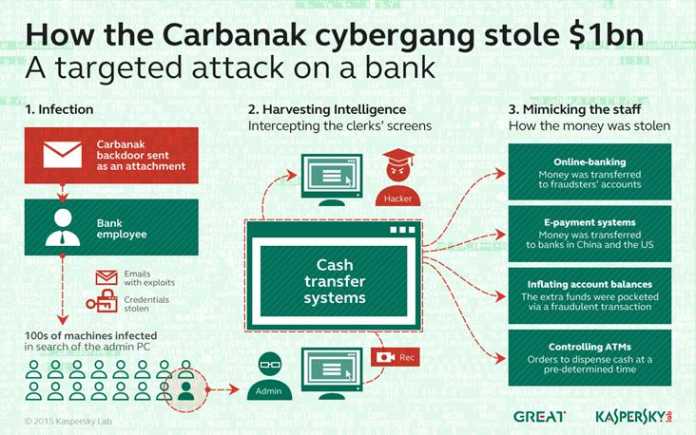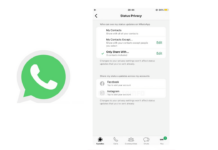Kaspersky lab has found a record from their Antivirus product that many of the system using payment method through the internet as Interbanking, with that other vulnerability to accused available into their system to hijack by hackers and steal bank information.
Internet of Things (IoT) is probably working with all connected devices to the internet, thus among every five connected devices at least one devices are vulnerable to hacking by hackers as report from Kaspersky lap, near about 5 million cases are being noticed by Kaspersky mobile antivirus as well as computer antivirus that somehow some sort of vulnerability found and hacked trying to breach the connection between the users and the bank the user using right at the moments.
These incorporate a coffeemaker that uncovered the property holder’s Wi-Fi secret key, a child video screen that can be controlled by a malevolent outsider, and a cell phone controlled home security framework that can be tricked with a magnet. Taking after this, in 2015 a group of Kaspersky Lab hostile to malware specialists rehashed the investigation with one little distinction: while David’s examination was focused for the most part on system connected servers, switches and Smart TVs.
Internet Banking Targeted 5 Million Times Kaspersky Reported
He found that every one of them were helpless. This most recent exploration was centered around the different associated gadgets accessible on the shrewd home business sector. The examination found that these gadgets contained vulnerabilities. This number is 17.2% lower than in the second quarter of the year, in spite of the fact that it is a 5.7% expansion since Q3 2014.
The gadgets chose for the analysis were as per the following: a USB-dongle for video spilling, a cell phone controlled IP camera, a cell phone controlled espresso creator, and a cell phone controlled home security framework. In Q3 2015, Kaspersky Lab arrangements blocked very nearly 626,000 endeavors to dispatch malware fit for taking cash by means of access to clients’ internet keeping money.
Amid the quarter, there were 5.68 million warnings about endeavored malware contaminations to take cash from clients by means of online access to financial balances. Singapore, last quarter’s pioneer, was moved to second place (4.2%) and 3% of clients in Turkey were under danger (third). The malware used to target internet saving money clients, Trojan-Downloader.Win32.Upatre was the most pervasive, being utilized as a part of 63.1% of assaults trying to take clients’ installment points of interest.
In Q3 2015, clients in Austria were assaulted by managing an account Trojans more than some other locale, 5% of all Kaspersky Lab clients in Austria confronted this danger amid the quarter. A large portion of the nations in the main 10 have noteworthy quantities of web managing an account clients, drawing in cybercriminals. Offenders may misuse a few of these issues without a moment’s delay, which is the reason it is so essential for sellers to alter all issues – even those that are not basic,” said Victor Alyushin, security specialist at Kaspersky Lab.
Worryingly, Kaspersky found that it’s difficult to settle this weakness, not even with a product upgrade, an issue that makes the framework on a very basic level defective. Scientists likewise found that an IoT home security framework contained a defenselessness that permitted them to utilize magnets to disturb its attractive field, empowering them to transparent a window the framework was intended to be ensuring without it “taking note”.
Also Read:
- TAFA Queensland Database Hacked & Exposed Students Personal Record ,
- Comodo Repaired Bugs Over Online Digital Signature Certificates ,
- ISIS Hacks More Than 54,000 Twitter Accounts
The organization cautioned that makers of IoT-associated gadgets must guarantee that their things are thoroughly tried before they’re discharged onto the business sector. “Any associated, application controlled gadget, is verging on sure to have no less than one security issue. At the point when taking a gander at a cell phone controlled home security framework, Kaspersky Lab analysts found that the framework’s product had recently minor issues and was sufficiently secure to oppose a digital assault.



